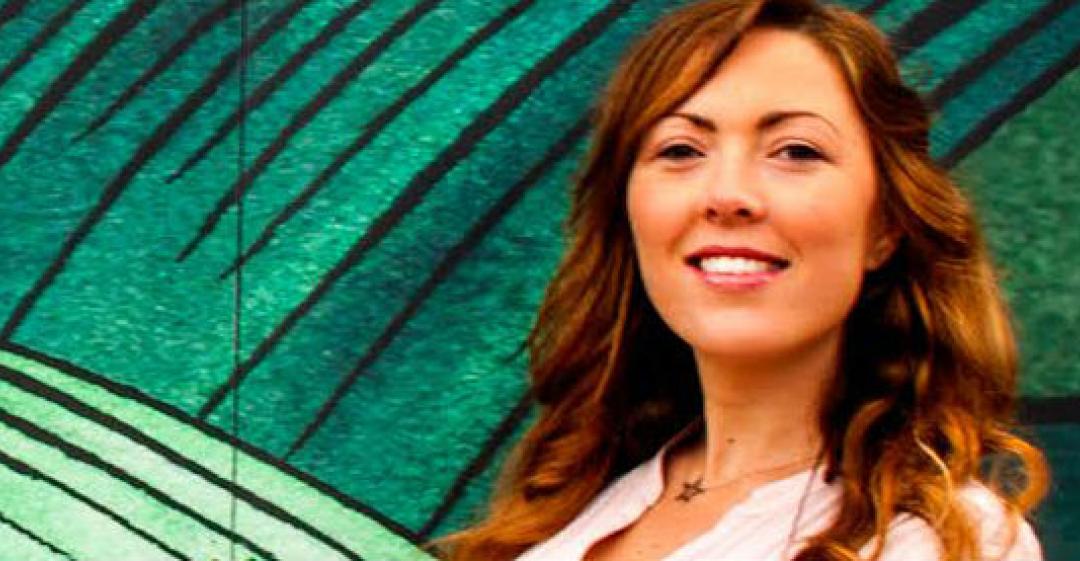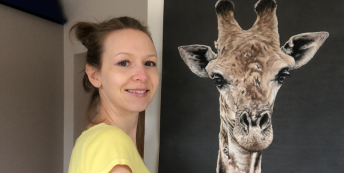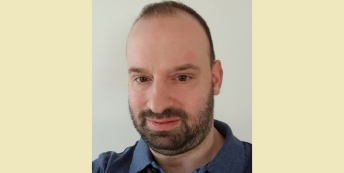“I felt my soul was dying a little more with each day that went by.”

What work were you doing previously?
I worked in consulting for one of the 'big four'.
What are you doing now?
When I moved out of the corporate world, I went into interior design.
First, I set up a traditional interior design business. Just recently I've changed tack and brought my business online. These days I offer online interior design coaching and run an interior design e-course.
Why did you change?
I left the corporate world because I felt like my soul was dying a little more with each day that went by.
It was a tough decision. I was doing pretty well and getting good feedback from clients and colleagues. But it just didn't light me up. I wanted to get that spark back.
When was the moment you decided to make the change?
I remember realising fairly early on in my career that my heart wasn't in it, but I just didn't know what I wanted to do instead.
I did a lot of soul searching. It was actually at a Careershifters workshop when the penny finally dropped: I had known all along what I wanted to do.
During the workshop we did an exercise where we imagined having a year off with no financial worries and were asked what we would do. It suddenly dawned on me that I'd had that opportunity previously: I'd spent a year living in Italy studying Interior Design!
The trouble was I had always been taught the myth of the 'starving artist'. I'd decided that I couldn't be an interior designer and that I should get a 'proper' job instead. Once I realised that was what had been holding me back, it was a relatively simple decision to make.
Are you happy with the change?
I get to help people create a new connection with their environments and, in so doing, improve their well-being and their relationships – with themselves and others.
What's not to love?!
What do you miss and what don't you miss?
I do miss the social interaction of working in an office and going for drinks after work.
But, in truth, the main thing you often bond with people over is complaining about the company you work for, so I don't miss that side of things!
I definitely don't miss the politics either.
Being an entrepreneur is tough. It's often an emotional rollercoaster when you're trying to create something meaningful. But I feel like I'm learning and growing every day, whereas in corporate life I often felt stifled.
How did you go about making the shift?
Initially, I started attending workshops, meetups and joining groups for career changers and entrepreneurs.
I did this alongside my full-time job, while I worked out what my plan was going to be. I also did a number of projects for friends on the side to build up my experience.
Then, once I was sure what I wanted to do, I managed to negotiate with my employer to reduce my working hours from full time to 20 hours per week. It meant having to change role, but since I knew it was a stepping stone to where I wanted to get to, it was worth it.
What didn't go well? What 'wrong turns' did you take?
When I started working as an interior designer I realised that, yes, there are parts of the traditional role of an interior designer that I LOVE, but there are also certain parts that I didn't enjoy very much.
It's also a job that tends to tie you to a particular location, unless you're one of the lucky ones at the top that gets brought in by clients all over the world!
For a while these two facts caused me a lot of anxiety, wondering if I'd made the wrong choice. I actually took some time out with my husband to travel and consider my next steps.
The conclusion I came to was that, yes, I did love interior design and it was absolutely the right choice for me. However, the way I had implemented it was wrong. I felt I had two choices: either to team up with someone who enjoyed the elements of the job I didn't (and vice-versa), or to do something a lot more radical and change my business model entirely. I opted for the latter.
That's how my interior design coaching practice was born. What I love most is working with clients to discover their own innate style, rather than working with those who want me to dictate to them exactly how their interior should look. I also love being able to work with people for whom working with a traditional interior designer would be out of reach. My business is now designed around both of those things – allowing me to do as much as possible of what I love, and leaving out the bits I didn't like when I first made the change.
How did you handle your finances to make your change possible?
Transitioning to part time allowed me to keep afloat, albeit at a lower standard of living.
But when you're pursuing your dream it's amazing how many things you don't miss that were an 'absolute necessity' when you were doing something soul-destroying and needed to reward yourself.
What was the most difficult thing about changing?
It might sound odd, but asking my boss if I could go part time was probably the single hardest step in all of this.
It effectively meant committing career suicide, having spent the best part of ten years building it up and working my way up the ladder!
My head was screaming "Don't do it – what if you change your mind?", but in my heart I knew I needed to do it. I wanted to put that stake in the ground so that there was no turning back.
In reality, if I'd continued to work full time in such a pressured environment, I'm sure I'd never have found the time and energy to make the change. In fact, I'd probably still be trying now…
What help did you get? 
I was very lucky in that both of my brothers-in-law are architects.
One of them helped me by recommending me to one of my first paying clients.
Otherwise, I started out doing projects for free and building things up through word-of-mouth.
On the business side, I have taught myself all of the marketing, web-design and copy-writing skills that I have needed through various online programmes.
Most recently I've been working with a business coach to help me take my business to the next level. On the one hand, it's scary to spend money on stuff like coaching, when you're just starting out and can't be sure of the return, but on the other hand it can speed up the process. It can get you playing at a higher level much more quickly than slogging away on your own.
What have you learnt in the process?
There isn't a day that goes by when I don't feel like I'm learning something new.
If you don't, your business doesn't grow either. It's scary, especially at first, but after a while you know that you couldn't go back.
What do you wish you'd done differently?
In some respects I wish I'd gone straight into interior design rather than spending so long building one career, only to tear it down again.
But I did gain invaluable experience, which is what has brought me a different perspective. If I hadn't done it that way around, I'd probably still be stuck in a traditional interior design role, having to put up with the bits I didn't enjoy because I knew no other way.
What would you advise others to do in the same situation?
Follow your heart and take the brave decisions.
There will be struggles, ups and downs, but it will be worth it to feel so alive!
I'd also recommend joining groups of other people going on a similar journey. They can be on Facebook rather than in real life, but I can't tell you how useful it is to surround yourself with other people making similar changes, even if it's just to help you feel sane.
What lessons could you take from Issy's story to use in your own career change? Let us know in the comments below.



